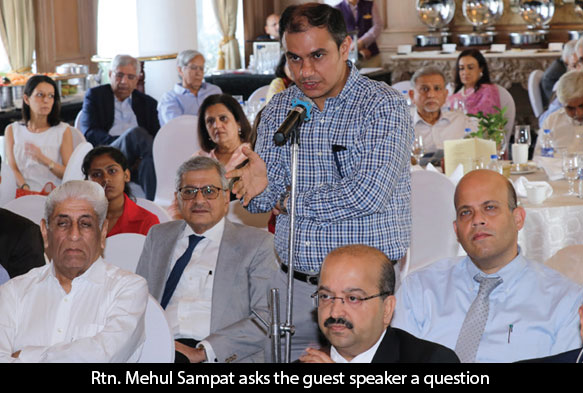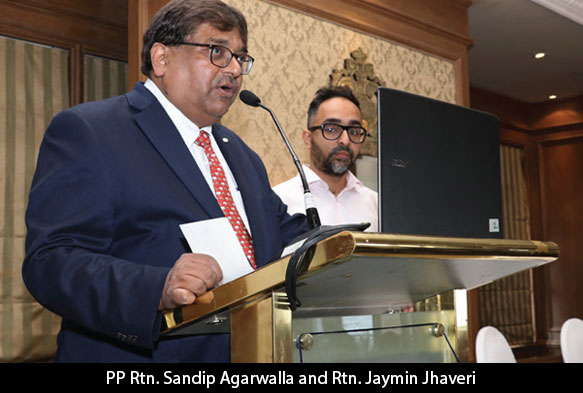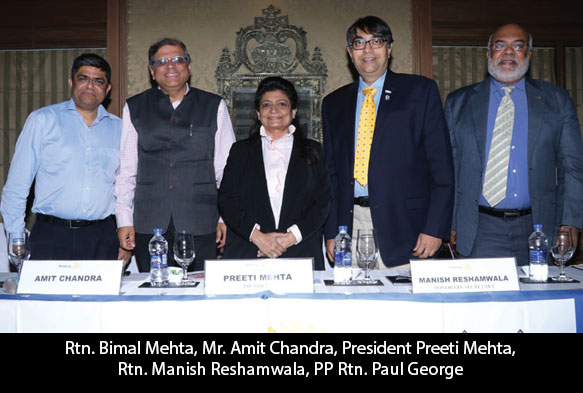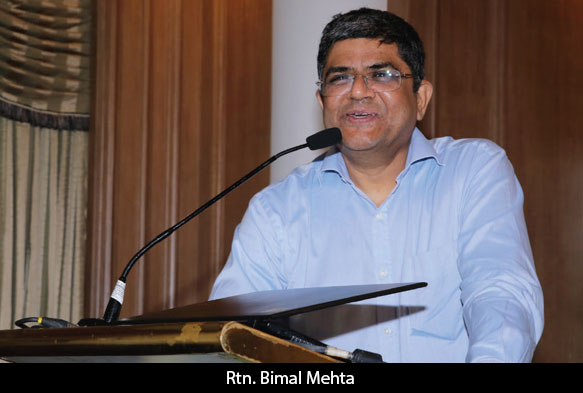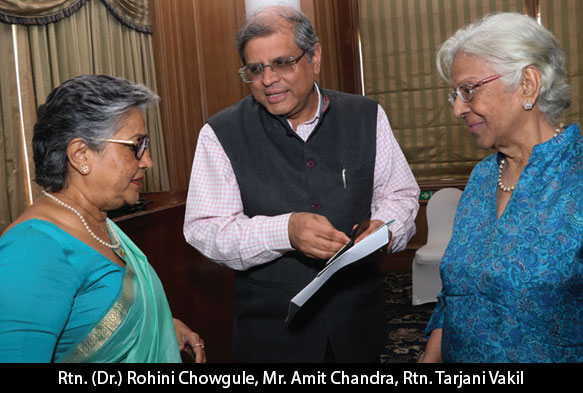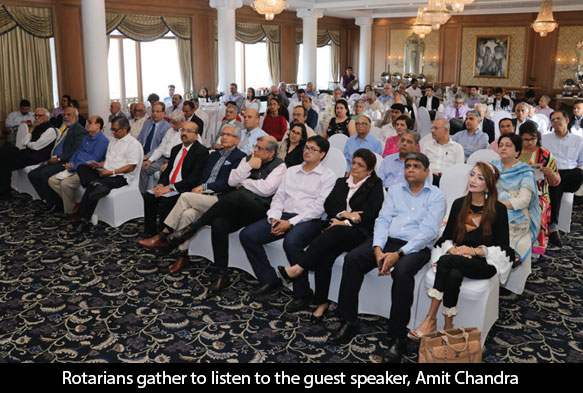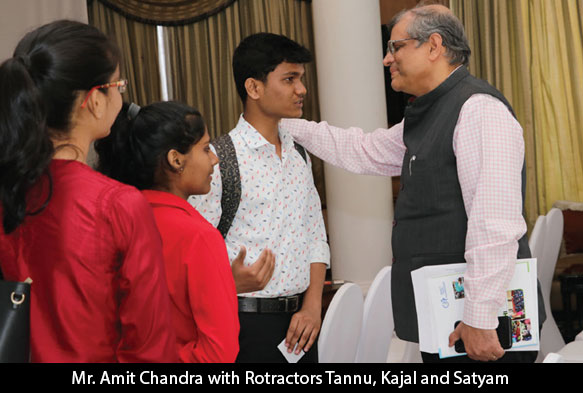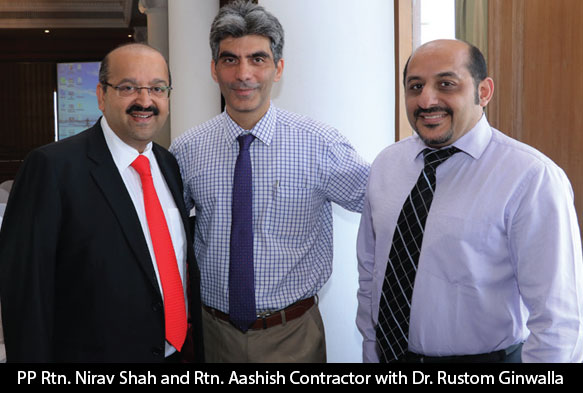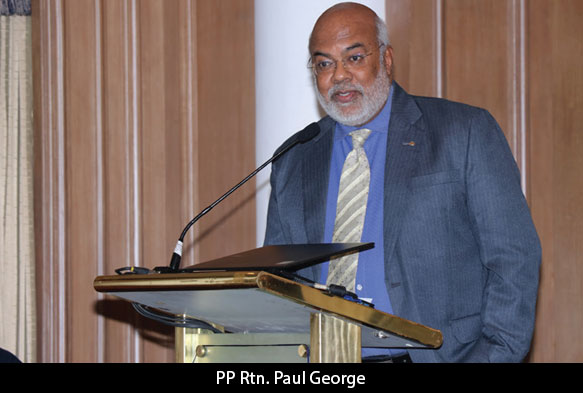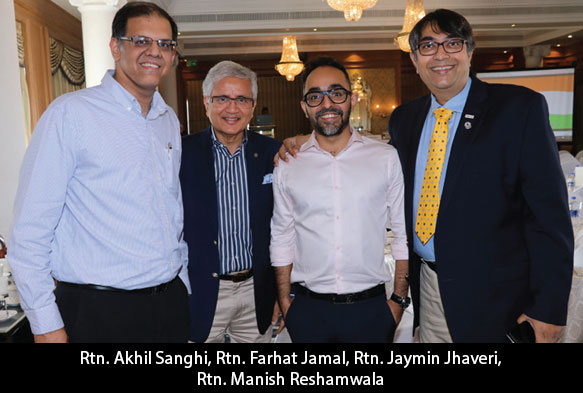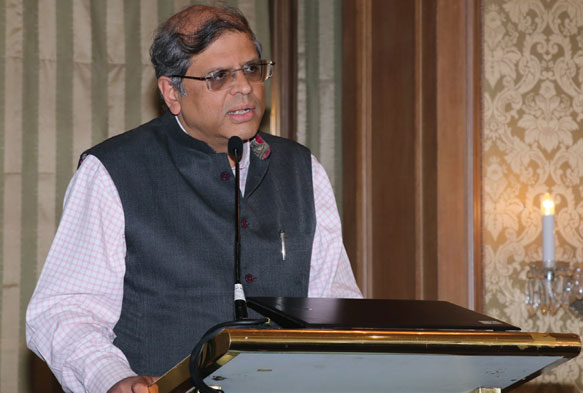
The Gift Of Giving
Amit Chandra spoke to Rotarians last Tuesday about the role philanthropy can play in our lives
In my life, I have had the privilege of building two institutions: one along with my Guru Hemandra Kothari, DSP Meryll Lynch, which went on to become India’s premier Investment Bank before it was folded with Bank of America. And, Bain Capital, which is now among the top private investment firms of the country. And the third – A.T.E. Chandra Foundation – which I am now on the journey of, which is our foundation, Archana’s and mine, which we run along with my close friend Anuj Bhagwati.
So it might be interesting to share with you the role that philanthropy can play in our lives. There is no better place to talk about it than in this wonderful building, built with the vision of Jamsetji Tata. He is one of my icons and has played a disproportionate influence in inspiring me to do what I do. I was very fortunate to be a Trustee of his wealth and sat on the Board of Tata Trust for many years. I read a lot about him in the years that I developed my thinking about what we should about our own wealth and with our time.
Jamsetji Tata redefined what philanthropy amongst the wealthy should be, over 150 years ago. He said even corporate philanthropy or wealth amongst the rich should actually exist for the sake of society. And that is why even Ratan Tata owned even less than 1 per cent of the Tata group’s wealth and rest of it, all of Jamsetji Tata and Dorabji Tata’s wealth, was essentially vested with the Tata Trust.
I was deeply influenced by philosophy when I was growing up as a professional.
I was very clear, as I was creating wealth, that wealth had a purpose; one’s needs had to be limited otherwise one had to be on a continuous treadmill of wealth creation for the sake of material consumption. And if one can actually limit one’s material needs to what one feels is moderate but really necessary and use the rest of it for doing good in a way one feels satisfied, then that could be really interesting and that’s what shaped our thinking, my wife and I. We are fortunate to have the blessings of our parents and god. We have been reasonably good wealth creators. I exceeded pretty much my financial goals by the time I was in my 30s but the excess of it has allowed us to build universities, colleges and hospitals. I believe that this is the template. Although I don’t go on debates with other wealth creators, I believe that if all of us figure out what is right from our consumption perspective and what will be necessary for our children, it will be the right model because we have all the resources we need but we still have a lot of inequity in the country and lots of poverty. I think what we have lost is a sense of community and caring in society. Wealth is a small part of it, Rotary in many ways embodies the sense of community by giving money and time. They are highly valuable.
Philanthropy is about two things to me – building a world that we all want to ideally see but we think is someone else’s responsibility. Second, it is personally much more satisfying and enduring in a way than any form of consumption can give us.
ROTARIANS ASK
CSR is unique to India, not many countries have it and despite no inheritance tax, we have individuals who are very philanthropic in their outlook. What do you think distinguishes India from the world?
I am a data-orientated person, I have studied data on Indian philanthropy very deeply. Every piece I have seen will unfortunately point towards giving us the very uncomfortable realisation that Indians are the most miserly people when it comes to giving. We like to think of ourselves as philanthropic but that is not the truth.
Contrary to popular notion, agriculture and farming needs more philanthropic thrust; what can we do in that area?
I spend time working with farmers. I am a little bit of a nerd so I look at the economic and social data very carefully. We have spent a lot of money on poverty alleviation schemes and drought relief schemes in the last decade. If we had spent on actually productive schemes which would have set our agricultural programmes right, we could have eliminated a lot of spending. So, that is the economic argument. The social argument is that if you look at the poverty and drought maps of India, they are exactly superimposed upon each other. The third thing is, if you ask who is marginalised more in India, you realise it is women in agriculture areas. So you have got to fix the agriculture in drought-prone areas. As a foundation, we fix water and income through natural farming in drought-prone areas. Rotary, in general, is very focussed on water.
Kudos on that. Even the government has woken up to see that water needs to be fixed.
You are involved with many charities. So many people are doing so much good work but, around us, we see poverty and illiteracy continue.
If you look at the macro data of how many tonnes of people have been uplifted and their lives transformed over the last few decades, the numbers are very impressive. But, during the same period of time, we are a country which has grown continuously so you still see a lot of problems. That tells us that we need to do a lot more. The government does a remarkable job on social spending. They are poor allocaters of resources. Whenever we run programmes in our companies, they are never constant, they are dynamic. The way a government thinks, there is no concept of programme in and programme out. They allocate capital on a steady basis. That is a terrible way to allocate all our capital. This is a problem. Now, when you move to the philanthropic sector, the total amount of capital that the sector provides is less than 1-2 per cent of what the government spends. We are a speck in the ocean. We need to use money to inform the government’s thinking and, importantly, implement advocacy.

